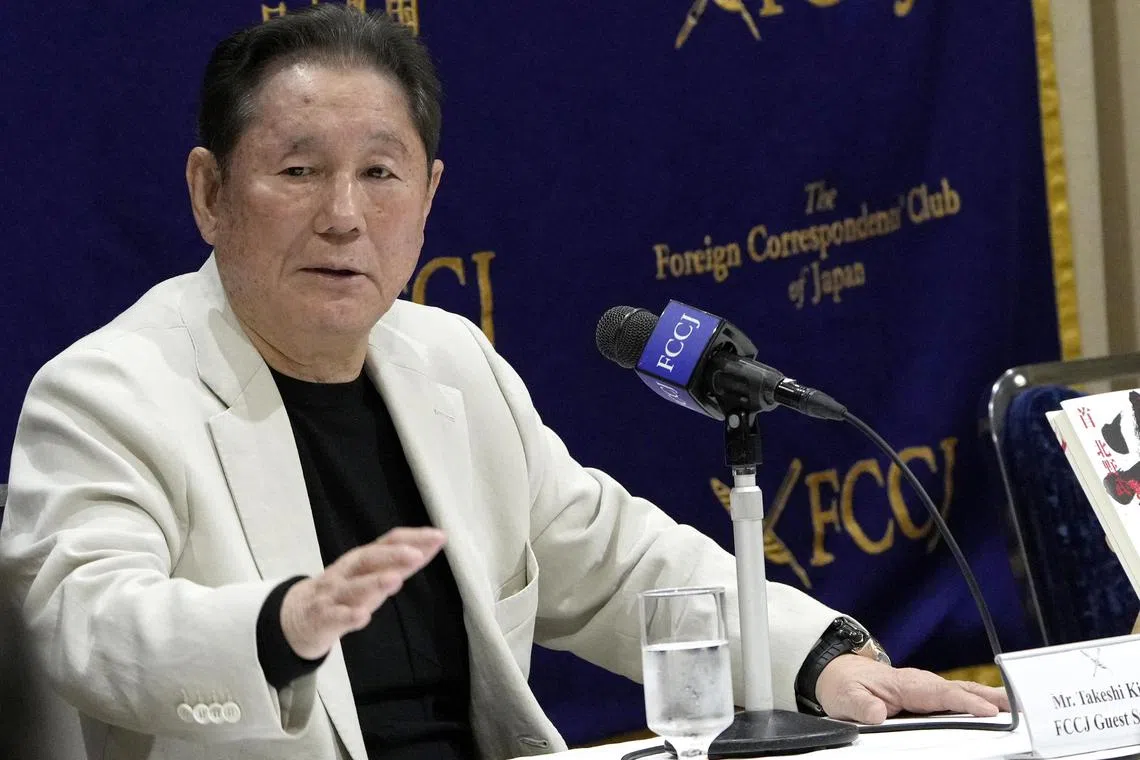Japan movie director Takeshi Kitano slams treatment of showbiz stars
Sign up now: Get ST's newsletters delivered to your inbox

Japanese comedian and film director Takeshi Kitano said the entertainment world in Japan has a culture of treating people as commodities.
PHOTO: EPA-EFE
Follow topic:
TOKYO - Takeshi Kitano, one of Japan’s most popular television comedians and film directors, hit out on Wednesday at the country’s entertainment sector after two reported deaths blamed on abuse and overwork.
Japanese media reported on Tuesday that one of late pop supremo Johnny Kitagawa’s many alleged victims of sexual abuse had killed himself.
The same day, the chairman of the 110-year-old all-female musical theatre group Takarazuka Revue said he was stepping down over the recent death of one of its actresses.
“I wouldn’t go as far as to say that is slavery as such, but in the entertainment world, particularly as it is in Japan, there has been this culture of treating people as commodities, as objects to be shown off in order to make money,” said Kitano, the 76-year-old director of Hana-bi (1997) and star of Battle Royale (2000).
However, speaking at a packed news conference at the Foreign Correspondents’ Club of Japan ahead of the Nov 23 release of his new movie, Kubi, he said things were slowly improving.
“There are many organisations or institutions within the entertainment world, they’re still very much functioning with these kinds of structures or these kinds of ways. I think within Japan now, this is starting to disappear,” said Kitano, who is also known by his stage name Beat Takeshi.
In September, Japan’s boyband empire Johnny & Associates admitted that its founder Kitagawa sexually assaulted young would-be stars over decades until his death aged 87 in 2019.
Allegations about Kitagawa swirled for decades, but it was not until this year that they ignited full-on soul-searching following a BBC documentary
The 25-year-old Takarazuka Revue actress’ lawyer said last week that she had killed herself in September after being bullied and overworked by senior members of the group.
Chairman Kenshi Koba apologised to the bereaved family at a news conference “for not being able to protect the life of your precious loved one”, but said an external team probing the death found no evidence of bullying, Kyodo News reported.
But the team acknowledged the possibility that the actress was under a “strong psychological burden”, adding that the group’s tight performance schedule had led to a situation where the mental and physical well-being of the actresses was being compromised amid a lack of oversight.
The storied Takarazuka Revue, founded in 1913, has long provided a popular alternative to traditionally male-only Japanese theatre.
But competition to get in is tough and, once selected, young recruits have to endure a rigid training regimen and negotiate a strict hierarchy. AFP

